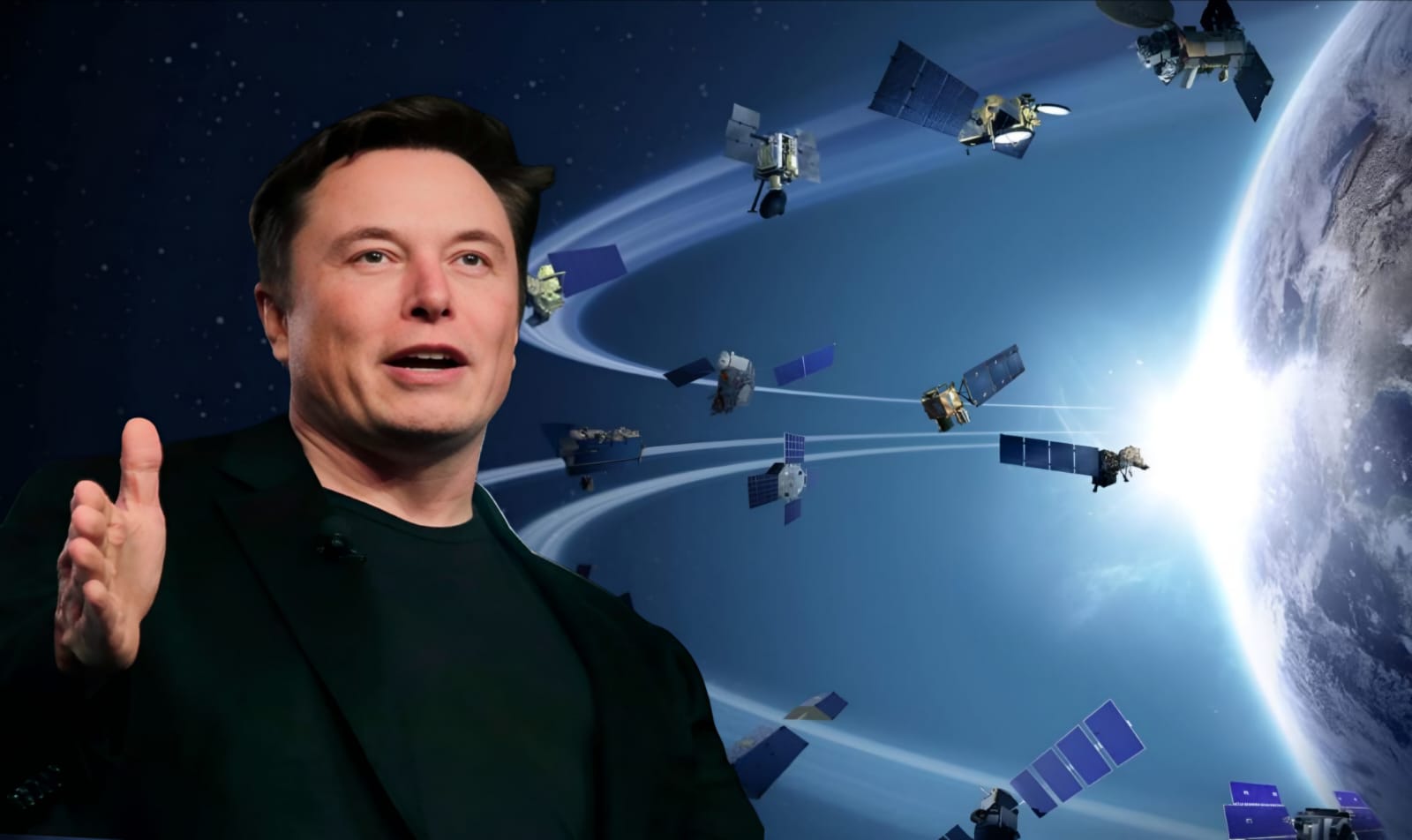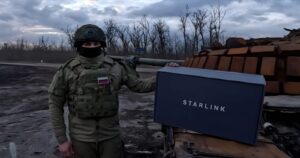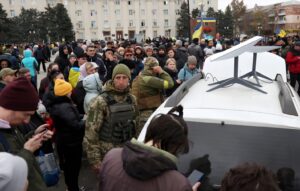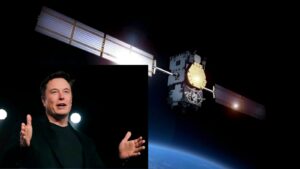
Contents
- 1 Elon Musk Commanded the Cessation of the Starlink Satellite Service as Ukraine Reclaimed Territory from Russia
- 1.1 1. Introduction: The Collision of Tech and Geopolitics
- 1.2 2. What’s Starlink and Why Does It Matter in Warfare?
- 1.3 3. The Turning Level: Musk’s Quiet Determination to Reduce Off Entry
- 1.4 4. Musk’s Acknowledged Causes: Stopping World Battle III
- 1.5 5. Ukraine’s Response: Betrayal or Enterprise Determination?
- 1.6 6. The Western Allies and the Ethical Considerations of Technology in Warfare
- 1.7 7. The Wonderful Line Between Affect and Management
- 1.8 8.A Precedent for the Future: Tech CEOs as Wartime Actors
- 1.9 9. Public Opinion: Divided on Musk’s Morality
- 1.10 10. Conclusion: The Duties of Energy within the Digital Age
Elon Musk Commanded the Cessation of the Starlink Satellite Service as Ukraine Reclaimed Territory from Russia
1. Introduction: The Collision of Tech and Geopolitics
In an age the place expertise influences every part from communication to warfare, the actions of a single tech mogul can reverberate throughout world battlefields. Elon Musk, the founder of SpaceX and CEO of Tesla, found himself at the center of a geopolitical controversy when he made the contentious decision to limit Starlink satellite television. for pc entry to Ukrainian forces throughout a vital second of their counteroffensive in opposition to Russia.
This transfer sparked heated world debate—ought to personal people have the authority to form the outcomes of wars? As Ukraine made important strides to reclaim territory occupied by Russian forces, Musk’s choice to withdraw Starlink protection raised essential questions in regards to the accountability of tech magnates in battle zones and the way deeply their instruments have been embedded into the material of recent warfare.
2. What’s Starlink and Why Does It Matter in Warfare?
Starlink, a satellite tv for pc web constellation developed by Musk’s SpaceX, gives high-speed, low-latency broadband web to distant and underserved areas throughout the globe. In a warzone like Ukraine, the place conventional infrastructure has been crippled by bombings and cyberattacks, Starlink turned an important instrument for communication, surveillance, and command coordination.
Ukrainian troops relied closely on Starlink to function drones, conduct reconnaissance missions, and preserve safe traces of communication on the battlefield. It successfully acted as a digital spine, permitting Ukrainian protection forces to take care of agility and connectivity beneath dire circumstances. Not like conventional authorities infrastructure, Starlink was a personal answer, making it each a blessing and a legal responsibility, relying on who managed the swap.
3. The Turning Level: Musk’s Quiet Determination to Reduce Off Entry
In mid-2023, as Ukrainian forces had been mounting an aggressive counteroffensive to retake Russian-held areas like Crimea and Donbas, experiences emerged that Starlink protection had mysteriously gone darkish in a number of essential zones. Later, it was revealed that Elon Musk had personally ordered the deactivation of Starlink in sure areas close to the frontlines. Musk cited fears that the Ukrainian army would use the expertise to escalate the battle into Russian territory, doubtlessly igniting a wider conflict.
By denying Starlink entry throughout a pivotal time, Musk made a calculated transfer—whether or not morally grounded or naively impulsive remains to be debated. This unilateral motion by a personal citizen despatched shockwaves by means of diplomatic and protection communities throughout the West.
4. Musk’s Acknowledged Causes: Stopping World Battle III
Elon Musk claimed his motivation was to keep away from contributing to the escalation of violence, notably assaults deep into Russian territory that might result in catastrophic retaliation, together with the attainable use of nuclear weapons.
He expressed concern that Ukrainian drone operations utilizing Starlink might cross purple traces set by the Kremlin, thus dragging NATO allies right into a larger-scale conflict. In a publish on X (previously Twitter), Musk acknowledged, “Starlink is supposed for peaceable use solely,” implying that its deployment in focused strikes might cross moral boundaries. Critics, nonetheless, argued that Musk’s reluctance to permit Ukrainian defenses to function freely gave Russia an unfair tactical benefit, elevating moral dilemmas about neutrality, accountability, and the overreach of personal affect.
5. Ukraine’s Response: Betrayal or Enterprise Determination?
The Ukrainian authorities and army leaders had been reportedly shocked by the Starlink cutoff. In some ways, they felt blindsided by a choice that doubtlessly stalled momentum throughout a extremely coordinated counteroffensive. Officers referred to the act as a “betrayal,” suggesting that the strategic blackout resulted within the failure of sure essential operations, together with drone assaults and troop maneuvers.
Although they understood Musk’s issues about world battle, many Ukrainian leaders considered the transfer as a capitulation to Russian threats. The road between humanitarian warning and passive complicity turned dangerously skinny. For a rustic combating for its very survival, the sudden withdrawal of important expertise was not only a technical concern—it was a possible shift within the conflict’s trajectory.
6. The Western Allies and the Ethical Considerations of Technology in Warfare

Musk’s choice triggered waves of concern amongst Western allies. If one man might deny entry to a key army instrument at a essential second, what different selections may observe—and who could be held accountable? NATO officers reportedly started reassessing their dependencies on privately-owned applied sciences, notably these not topic to governmental oversight.
Questions in regards to the ethics of tech-enabled warfare emerged: Ought to tech corporations be pressured to signal conflict-use agreements, very similar to arms producers? Does the operation of Starlink in Ukraine position SpaceX as a de facto protection contractor, subject to international regulations and political examination? Musk’s actions revealed an uncomfortable reality: within the twenty first century, conflict could also be waged with satellites, servers, and code simply as a lot as weapons and tanks.
7. The Wonderful Line Between Affect and Management
Elon Musk, arguably essentially the most influential technologist of our time, has typically positioned himself as a disruptor—whether or not in area, electrical automobiles, or synthetic intelligence. However within the Ukraine battle, his affect prolonged past disruption into the realm of geopolitical management.
His decision-making, whether or not from ethical impulse or private concern, positioned him able that historically belongs to elected officers and worldwide our bodies. Critics argue this undermines democratic oversight, making a harmful precedent.
If world warfare will be influenced—or halted—primarily based on a billionaire’s conscience, the construction of worldwide diplomacy may have a rethink. Musk did not merely provide a instrument—he took on the function of gatekeeper for a way that instrument could possibly be utilized in fight.
8.A Precedent for the Future: Tech CEOs as Wartime Actors

The Starlink incident with Ukraine could also be remembered as a pivotal second within the evolving function of expertise in warfare. With the traces between civilian and army instruments turning into more and more blurred, the accountability borne by CEOs like Musk is rising exponentially. Protection strategists warn that governments should not permit essential nationwide safety infrastructure to be ruled by personal phrases of service.
In response, there are discussions round forming worldwide agreements to control the wartime use of business applied sciences. This might embrace pre-approved deployment zones, utilization protocols, and authorities override clauses. The world is getting into uncharted territory the place tech executives will be wartime actors, shaping army outcomes not by means of drive, however by means of entry and code.
9. Public Opinion: Divided on Musk’s Morality
Public reactions to Musk’s choice have been deeply divided. Some hailed him as a visionary peacemaker, arguing that stopping escalation was each moral and brave. Others accused him of overstepping his function and performing as an unelected energy dealer in a sovereign battle. The backlash additionally uncovered ideological divisions between tech idealists who consider in free innovation and pragmatists who argue for regulation and accountability.
Musk’s loyal supporters defended his stance as principled, pointing to his long-standing issues about AI and nuclear threats. Detractors, nonetheless, noticed it as naive meddling. No matter one’s stance, the general public debate made one factor clear: Musk’s affect is now not confined to boardrooms and startups—it’s world and deeply political.
10. Conclusion: The Duties of Energy within the Digital Age
Elon Musk’s choice to restrict Starlink entry in Ukraine wasn’t only a footnote within the conflict—it was a milestone in how digital infrastructure now intersects with world battle. His actions raised uncomfortable questions in regards to the privatization of wartime instruments, the function of conscience in enterprise, and the fragility of counting on company goodwill in issues of life and loss of life. Because the world continues to digitize, tech leaders should grapple with the immense obligations that include energy—particularly in battle zones.
Musk’s controversial alternative will probably be studied for years to come back, not just for its instant affect on Ukraine’s army efforts however for the precedent it units for the long run. Within the new age of digital warfare, the stability of energy could lie much less with nations and extra with networks.

